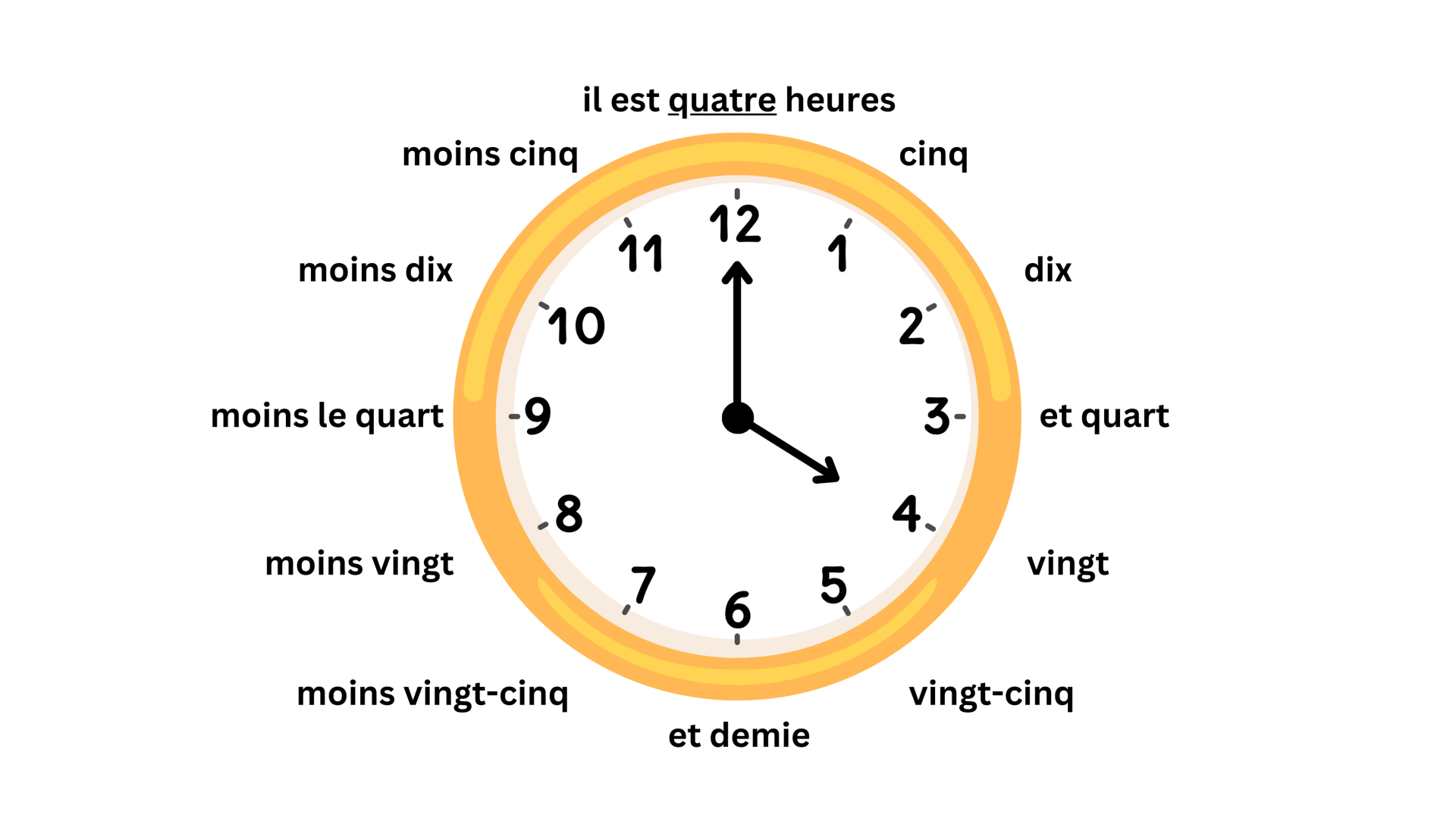Write your awesome label here.
Quelle heure est-il?
What time is it?
À quelle heure est...?
(At) what time is...?
À ... heures
At ... o'clock
Il est ... heures
It is ... o'clock
une horloge - a clock

am & pm



